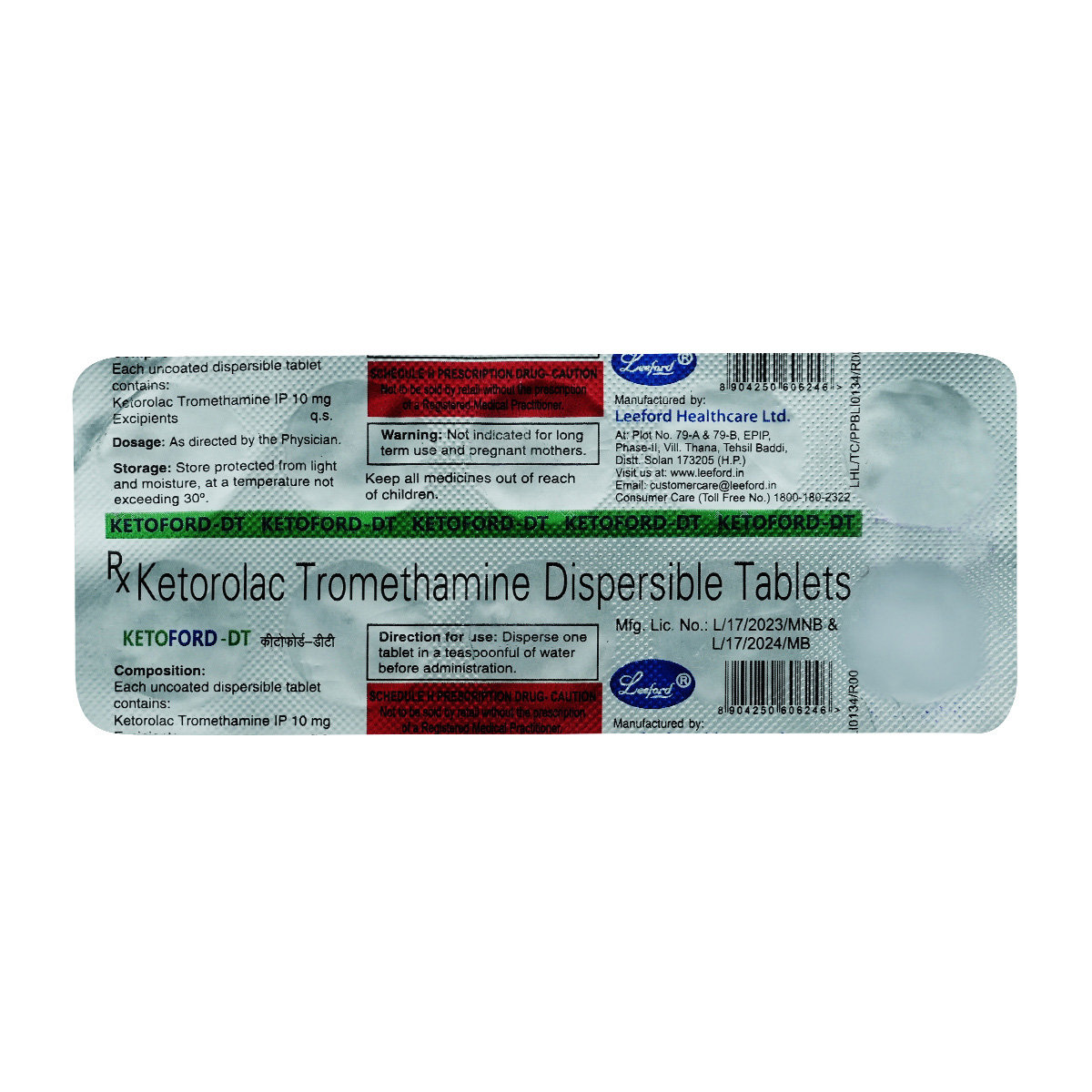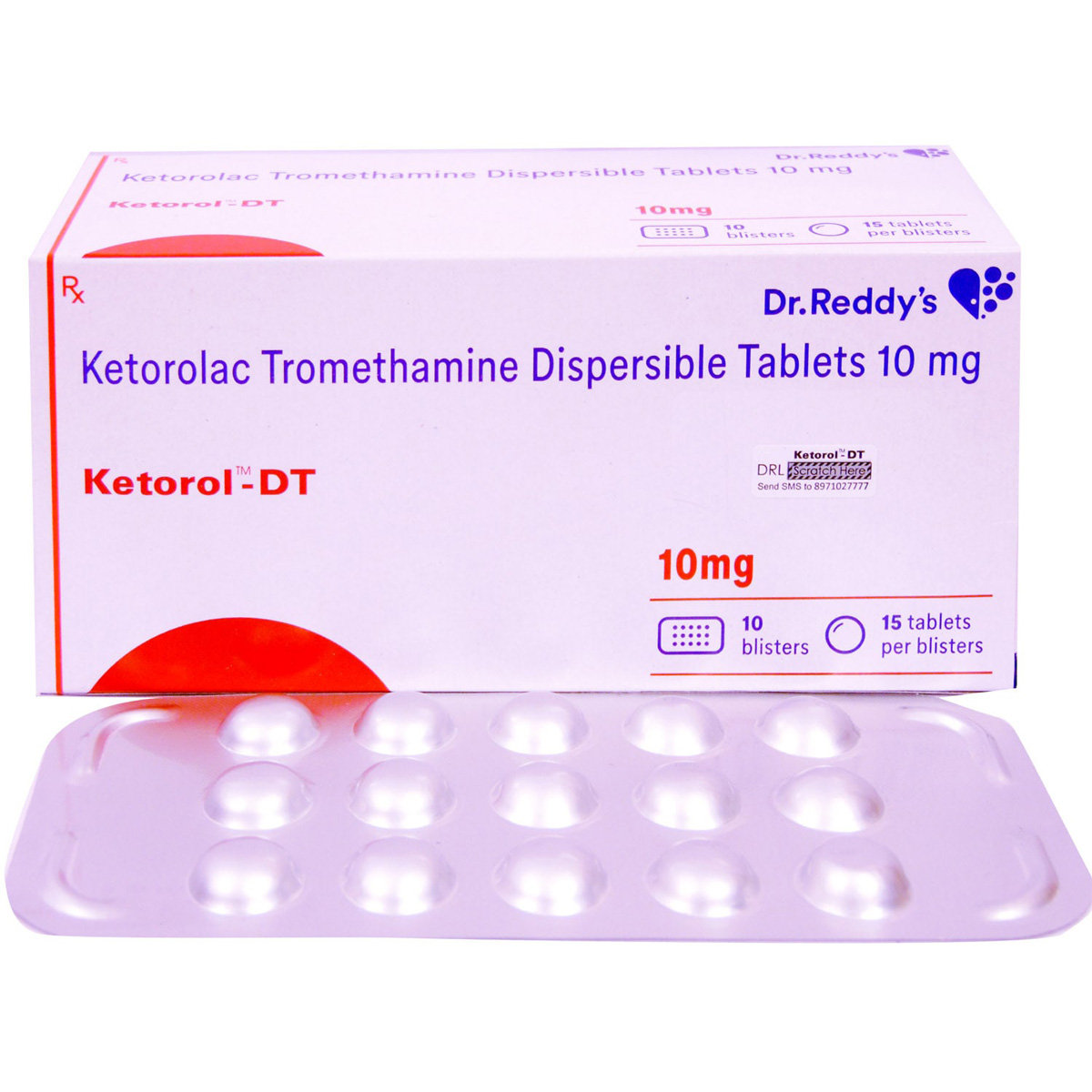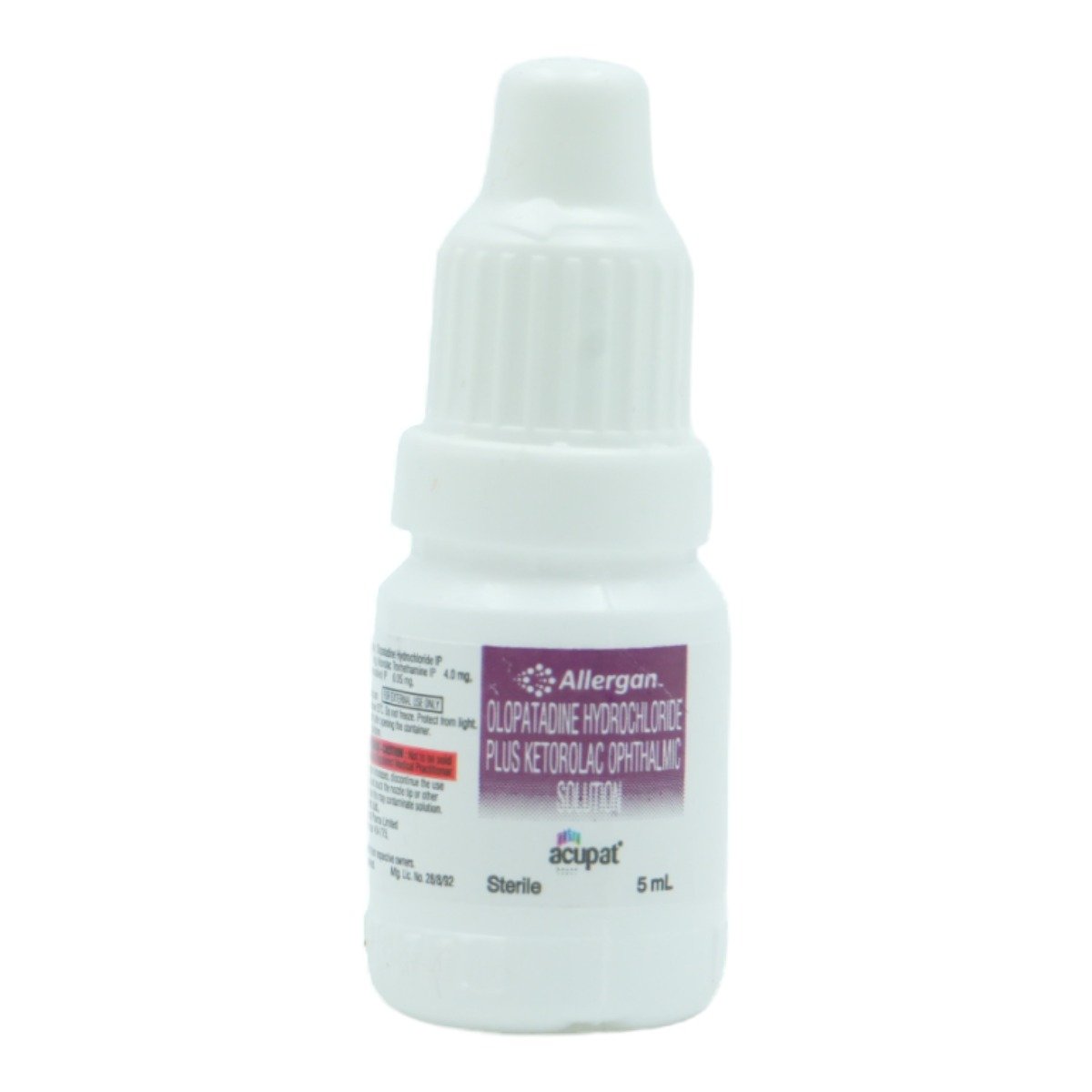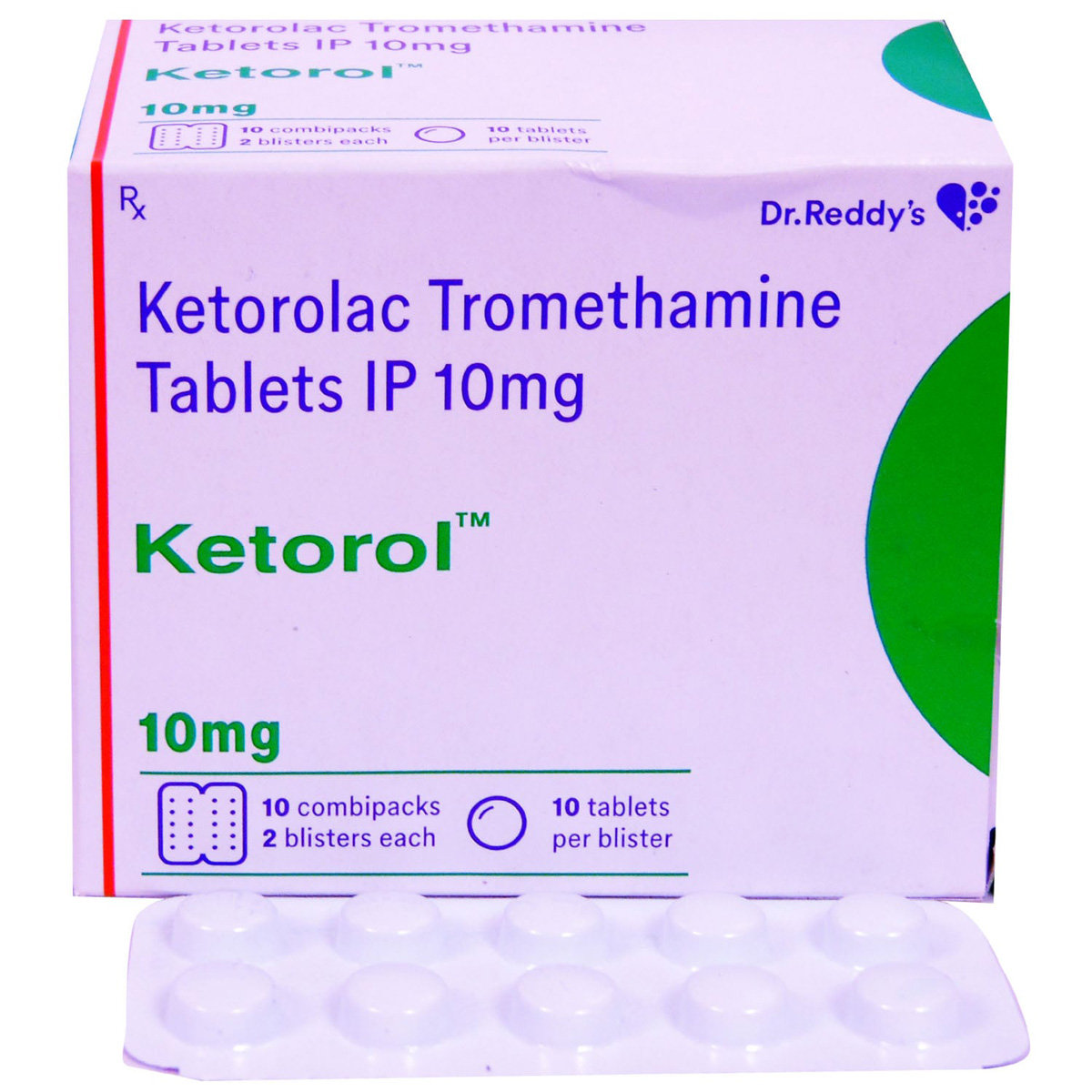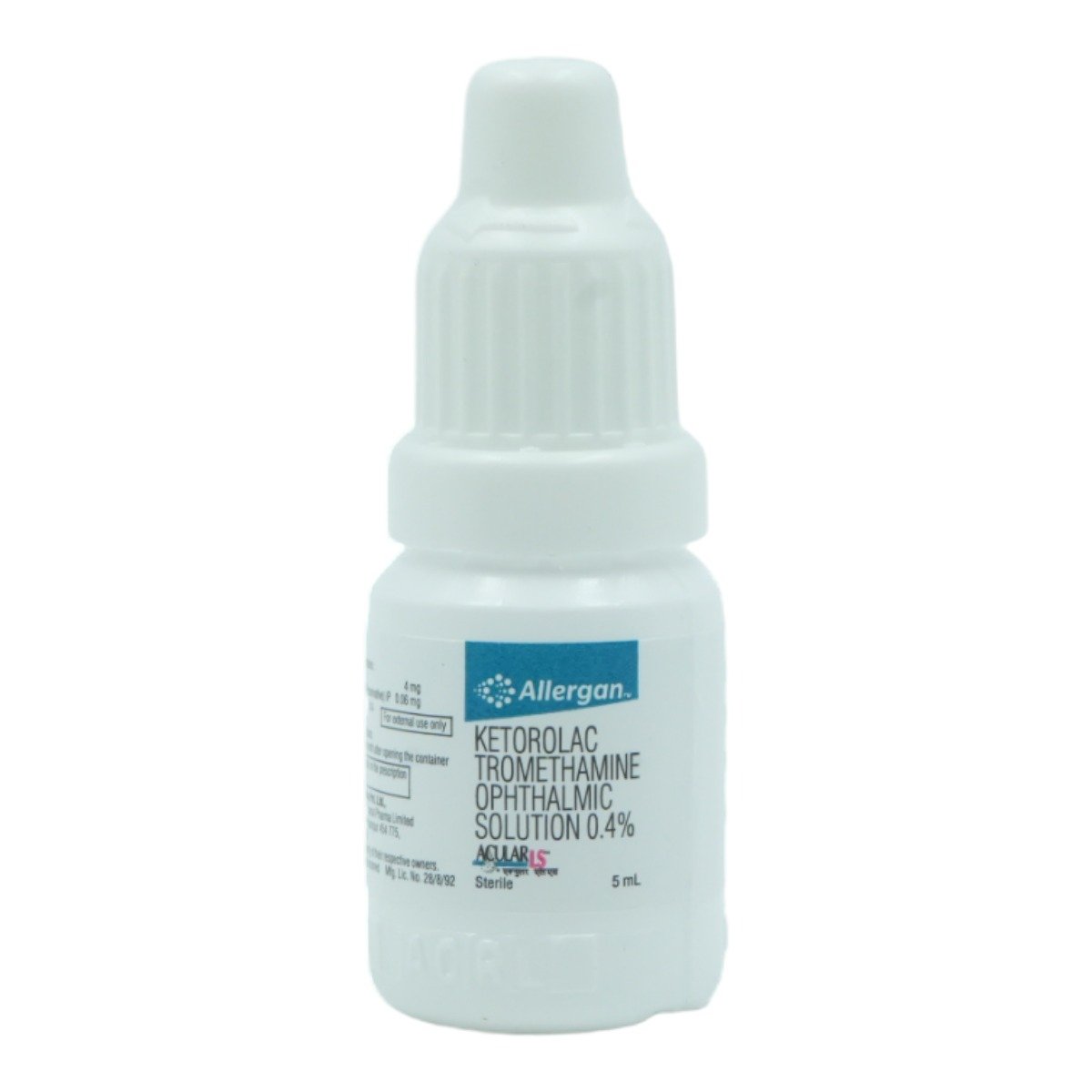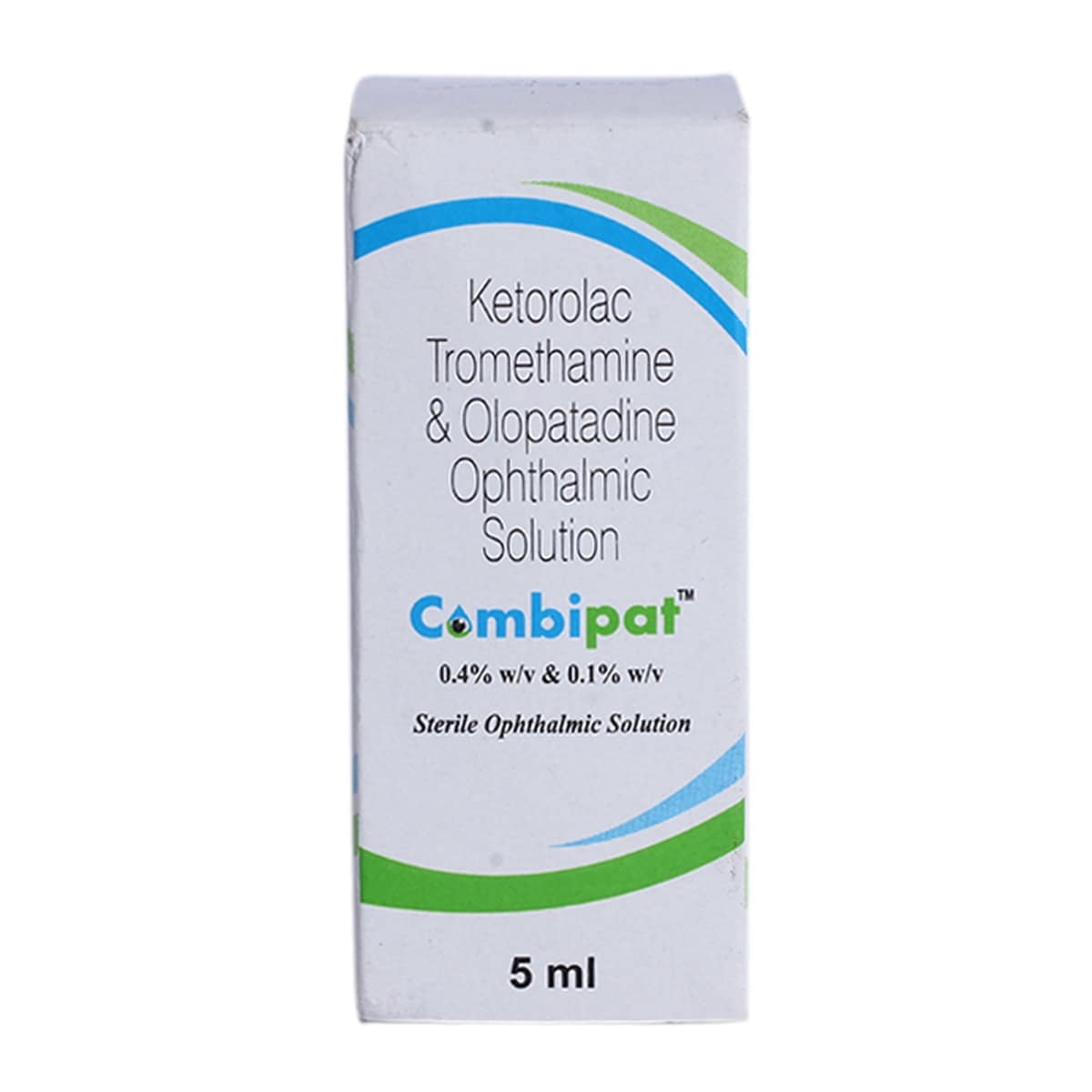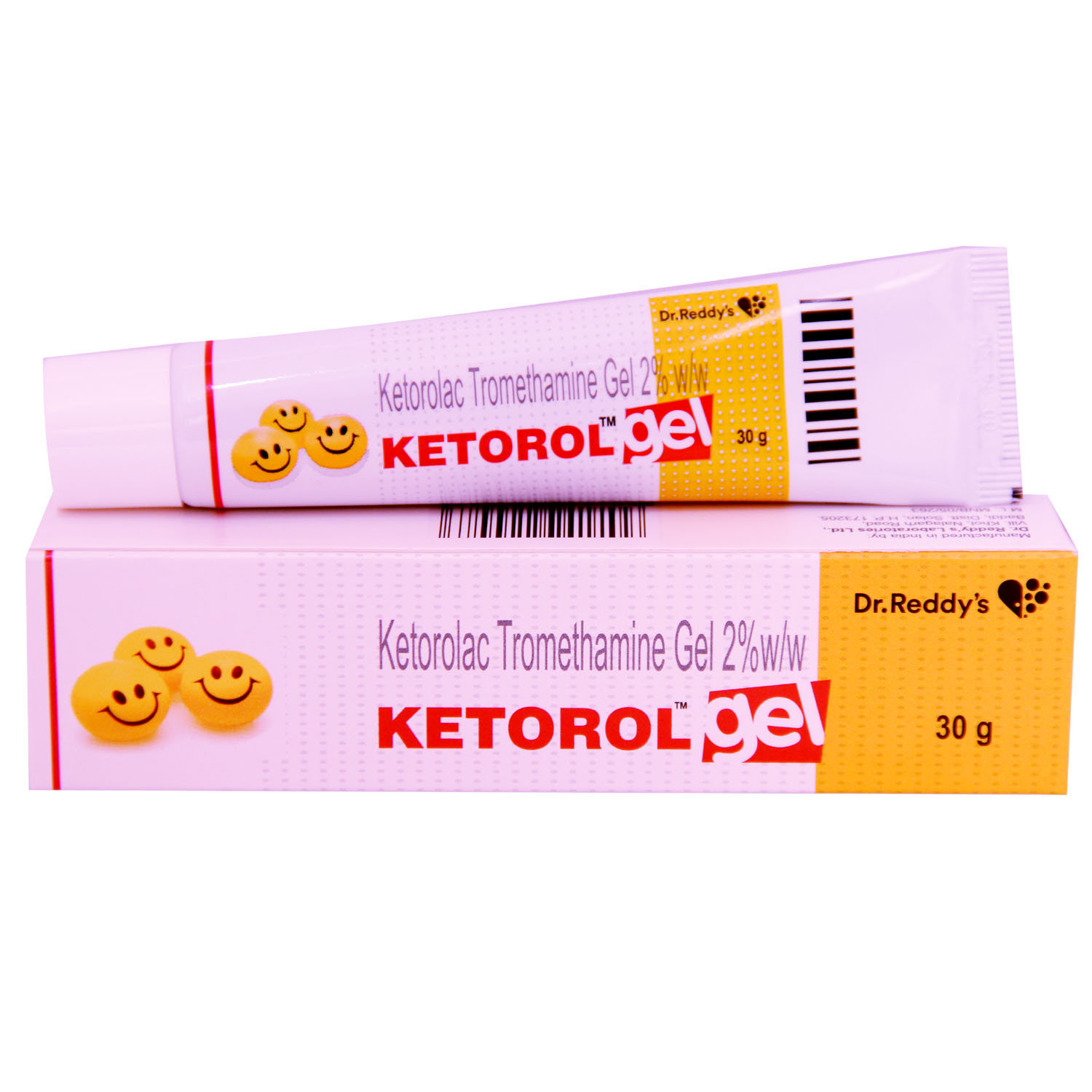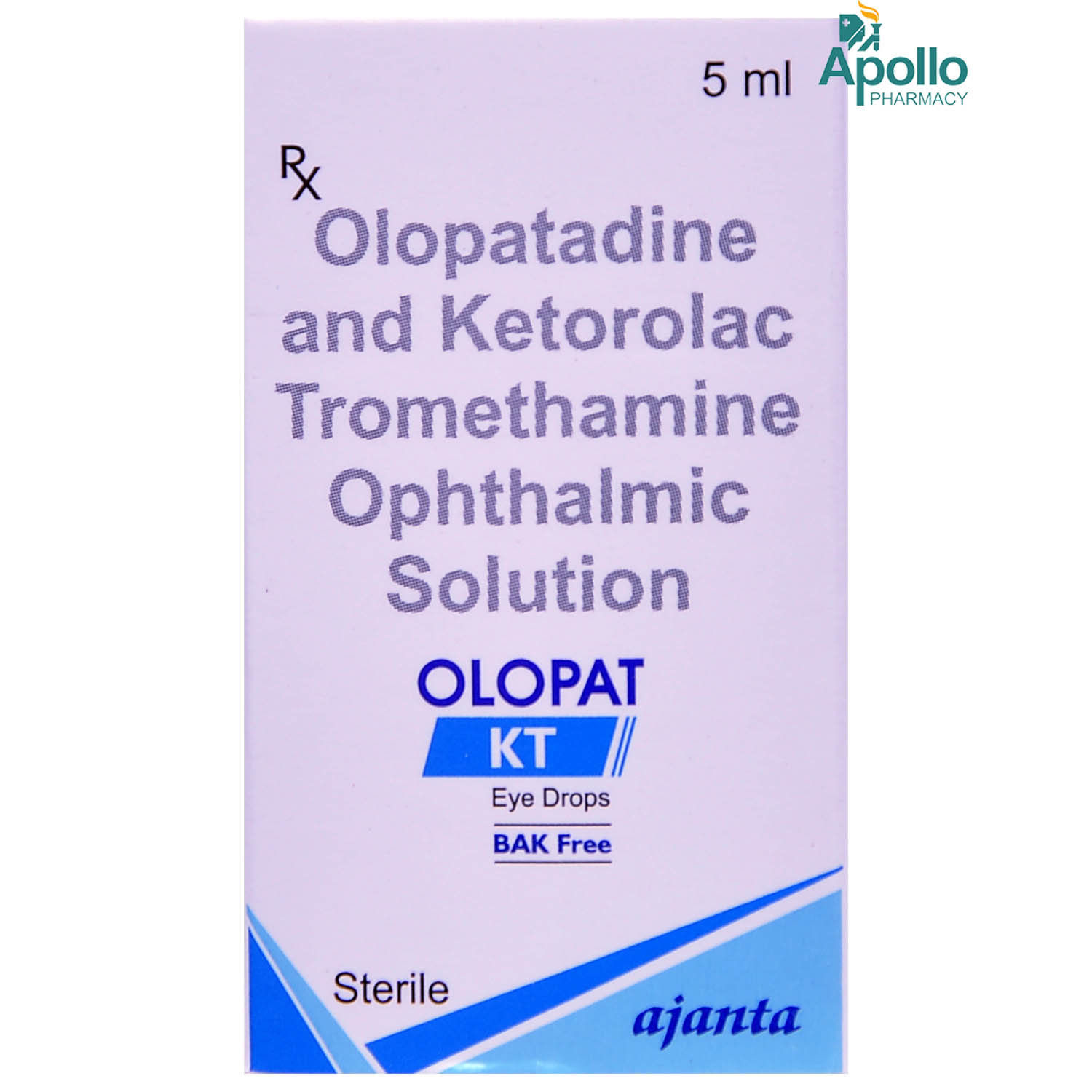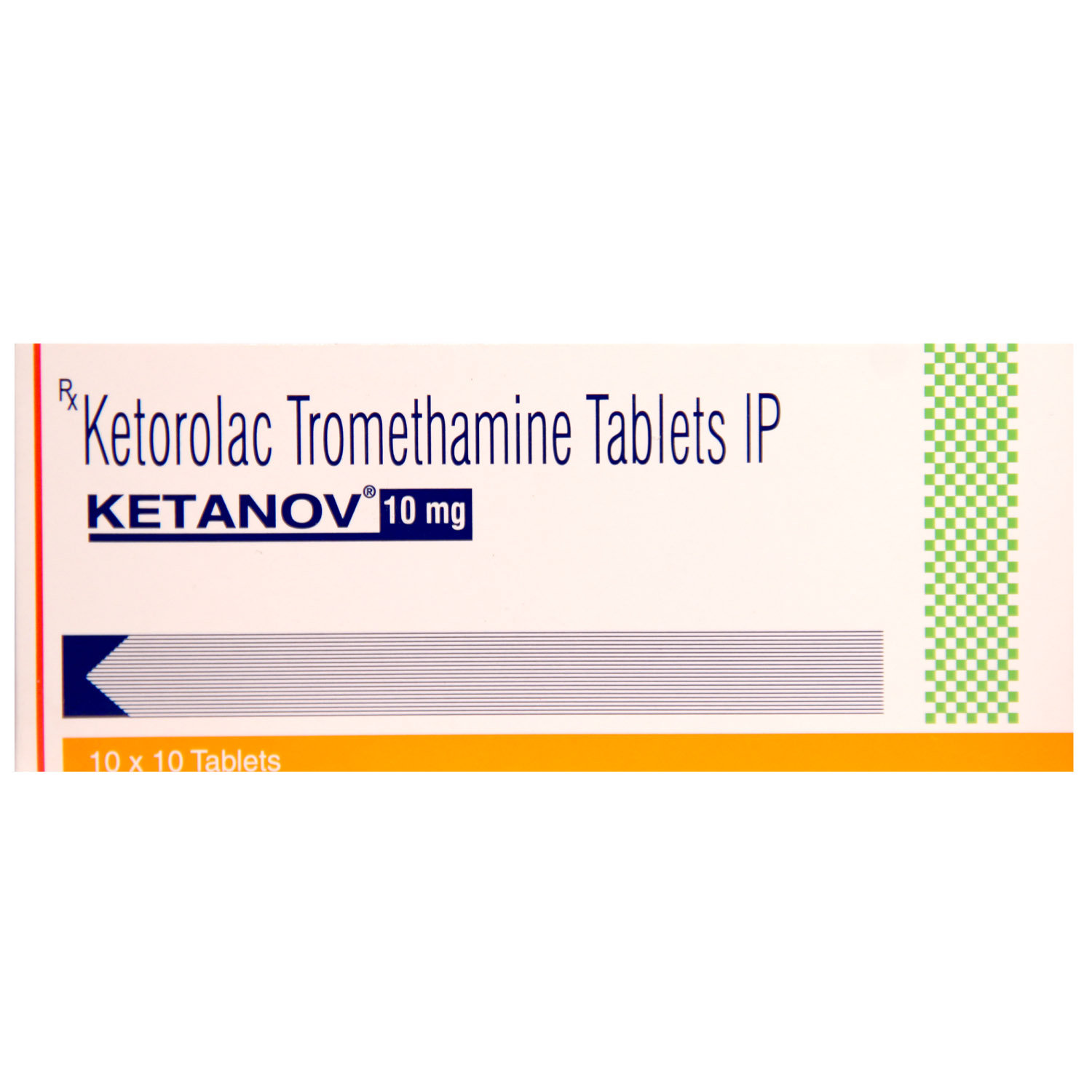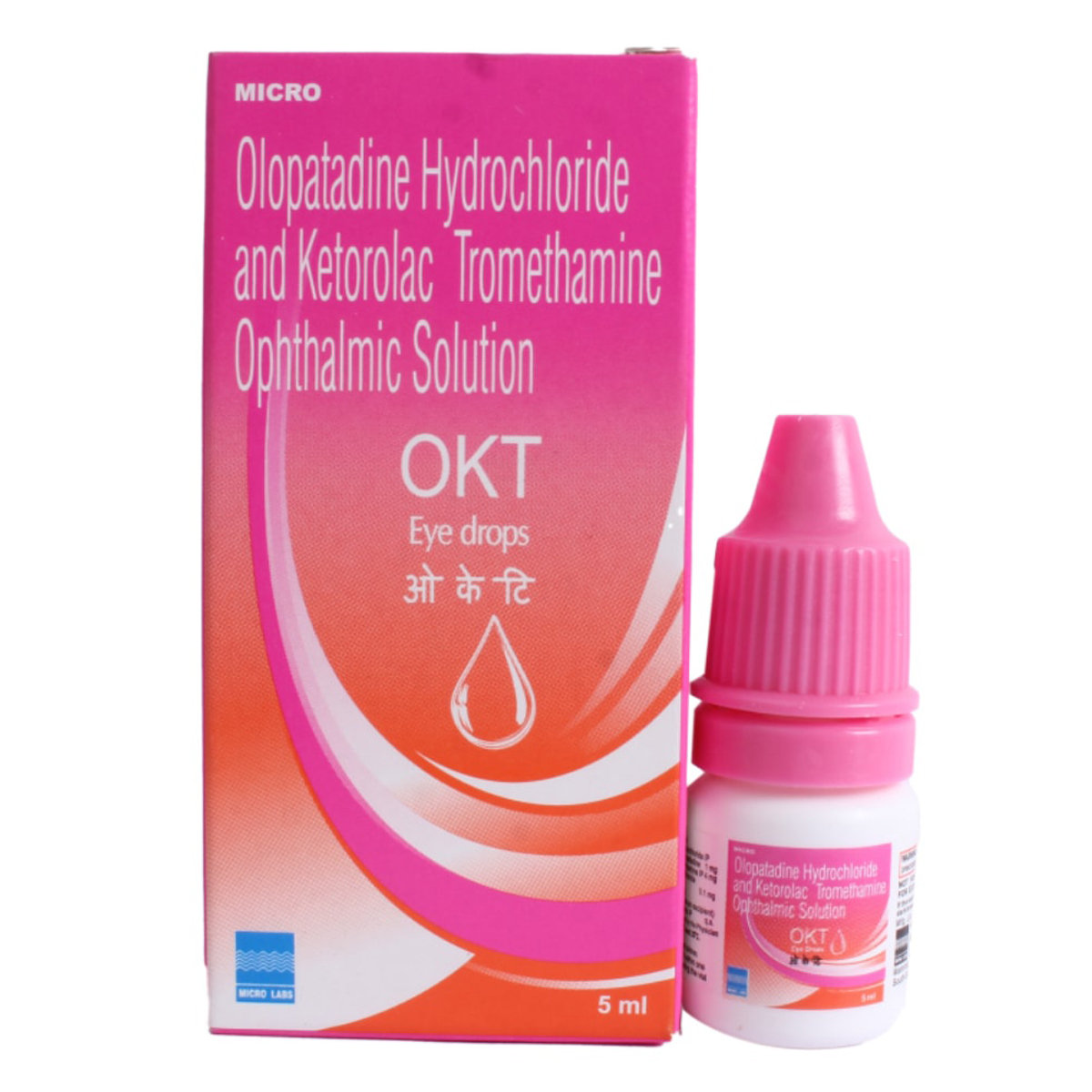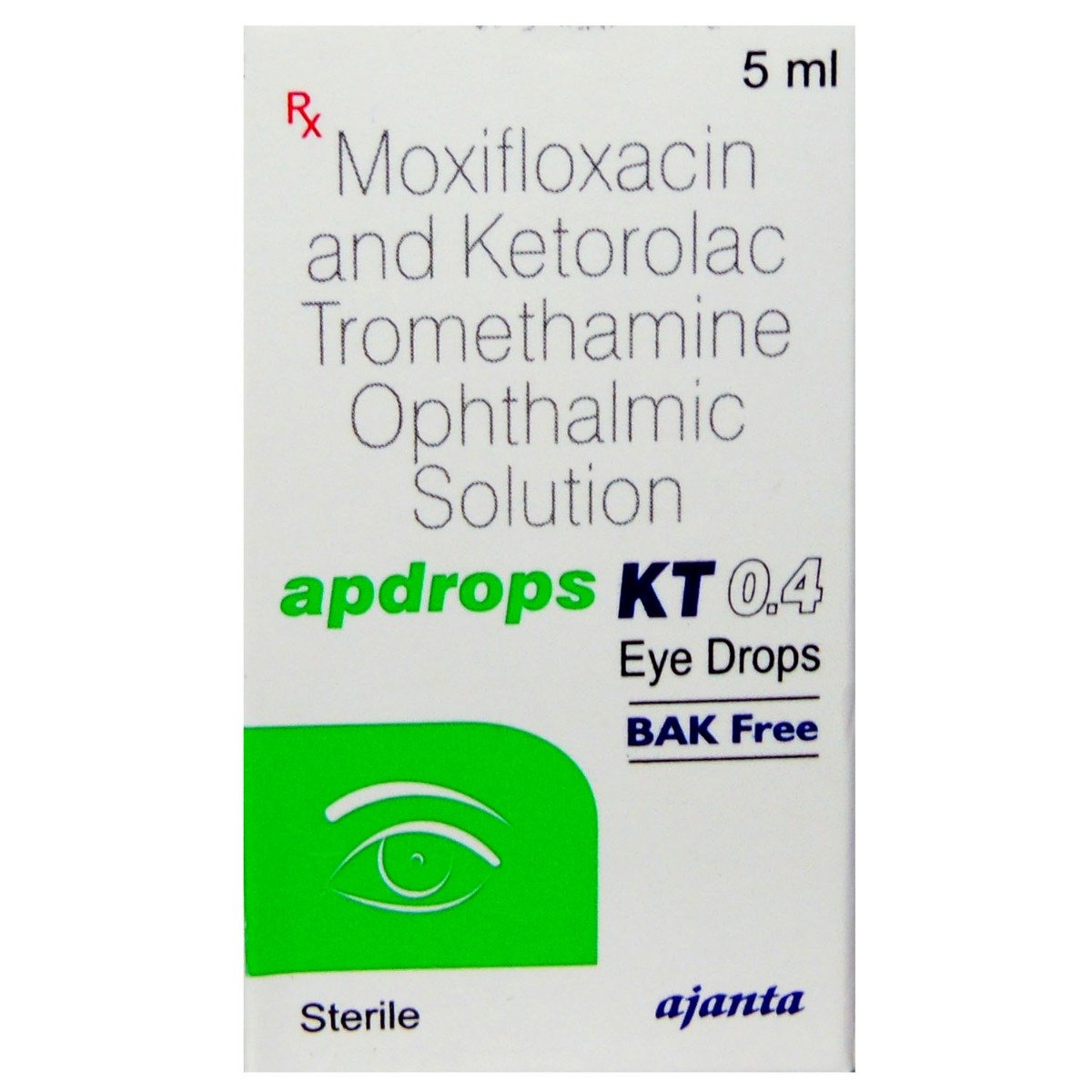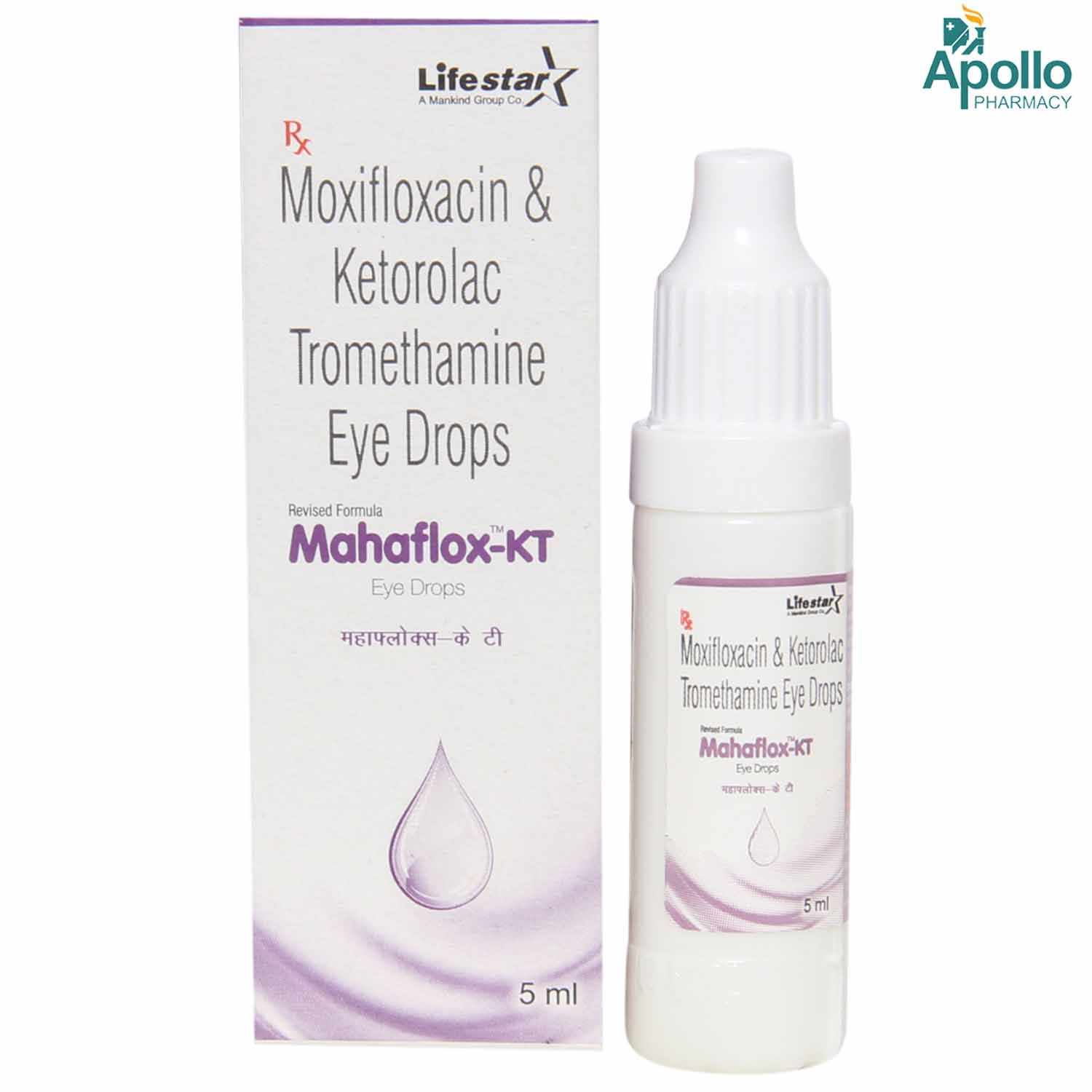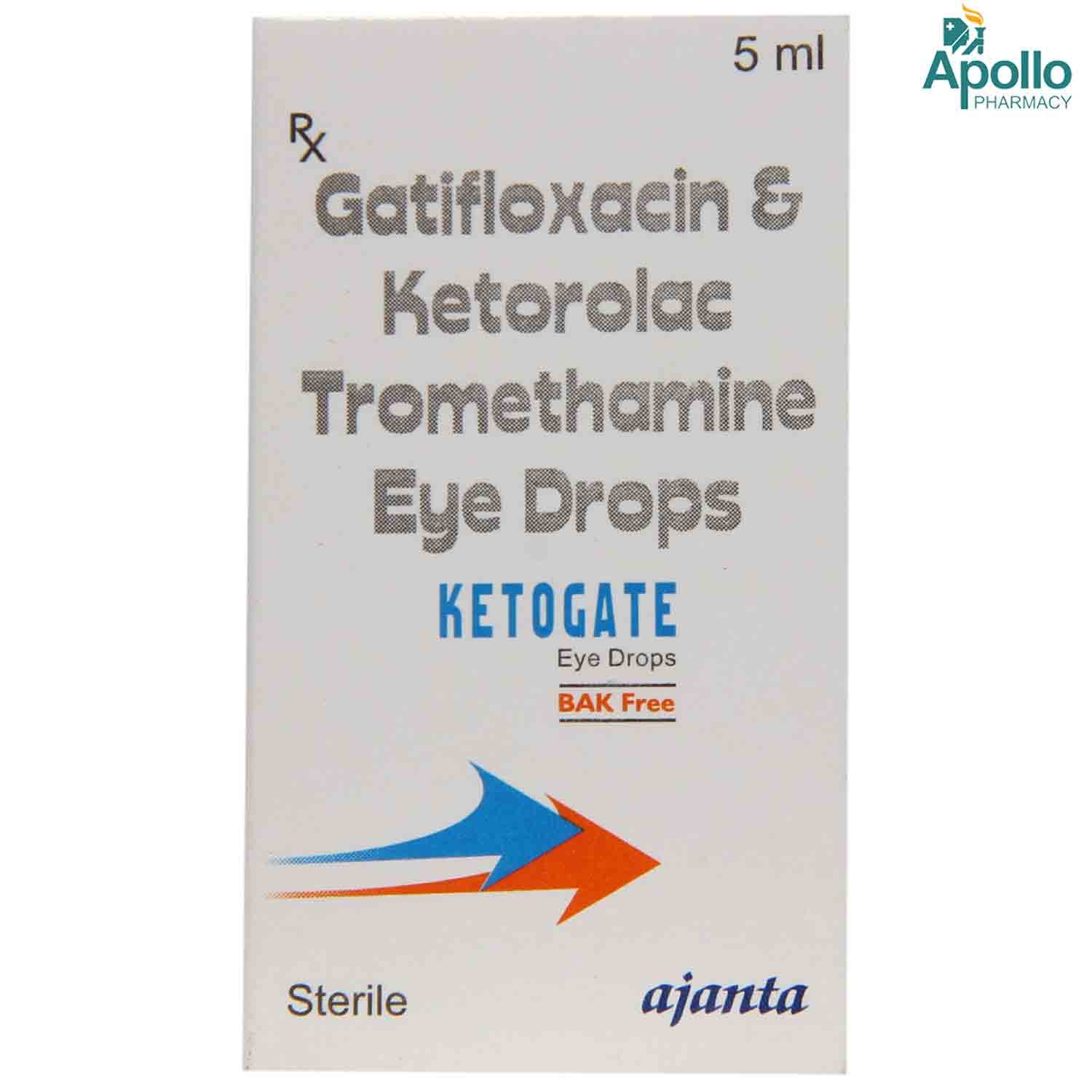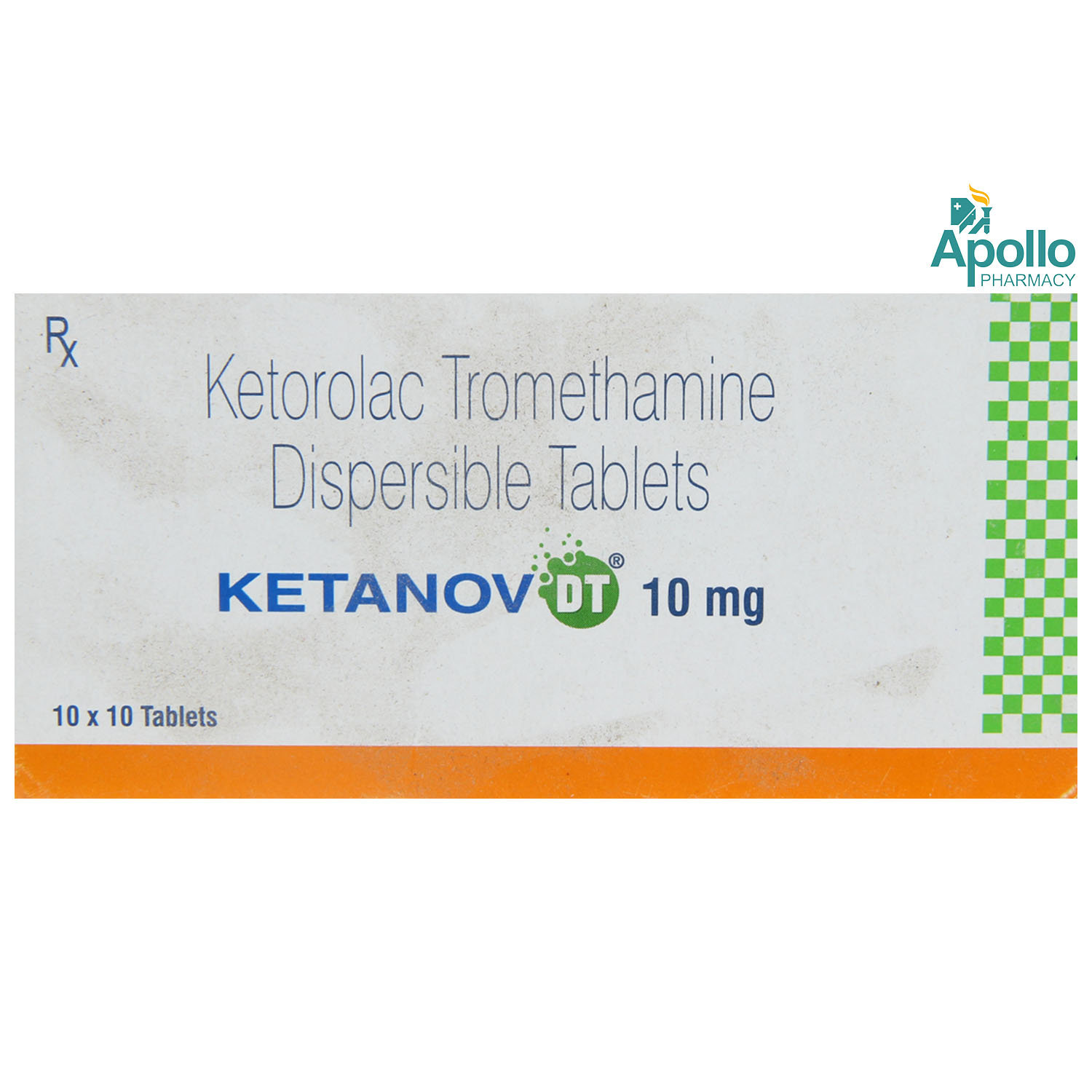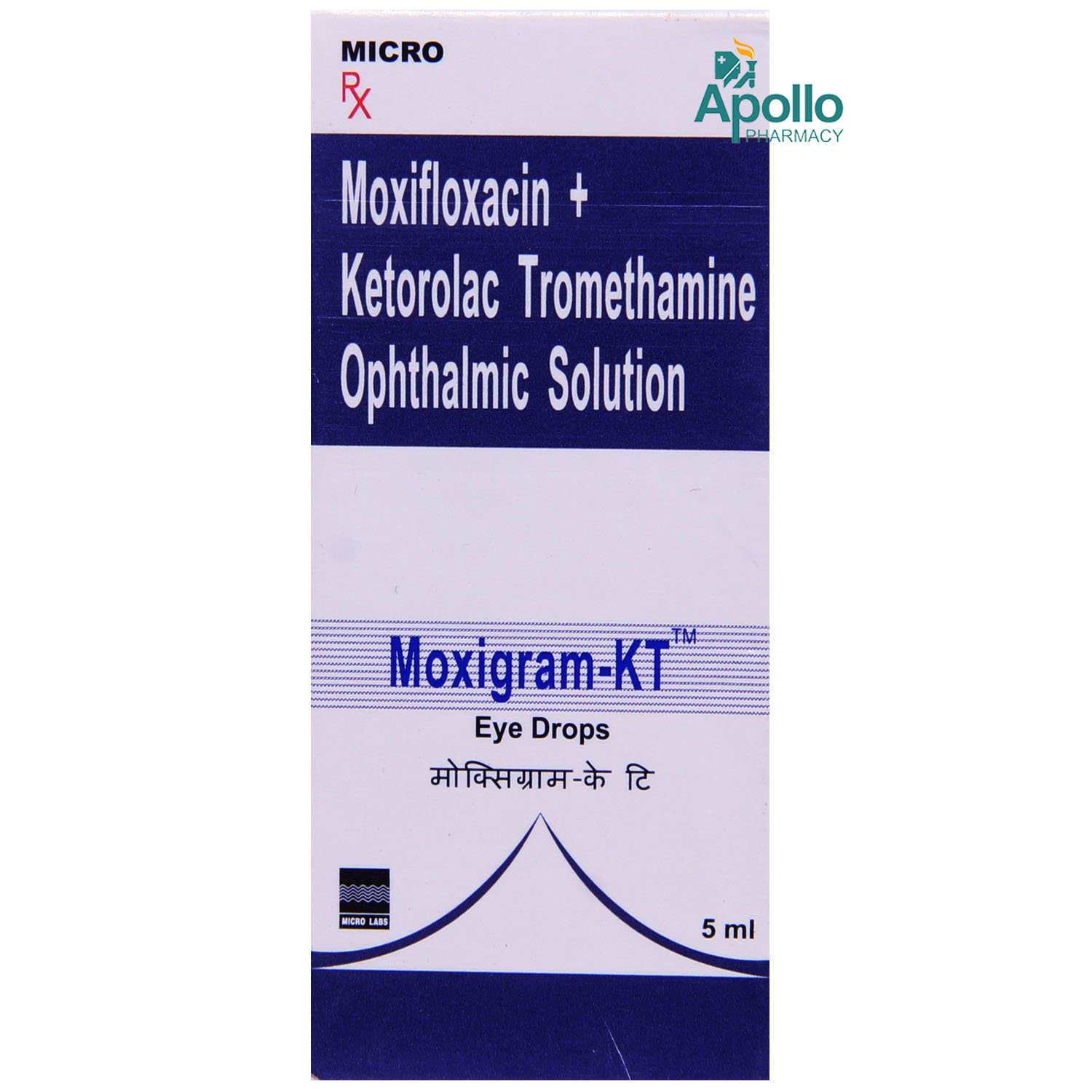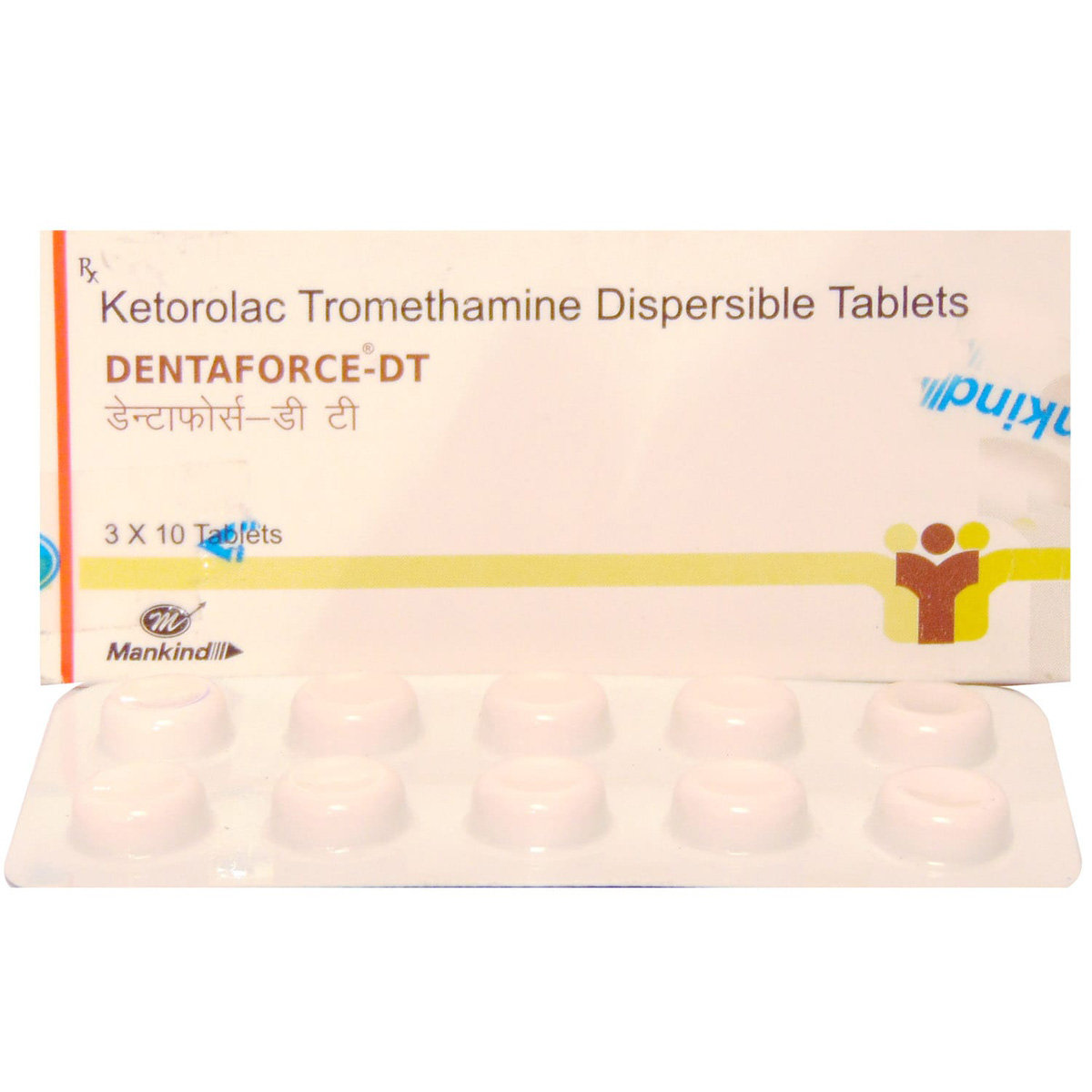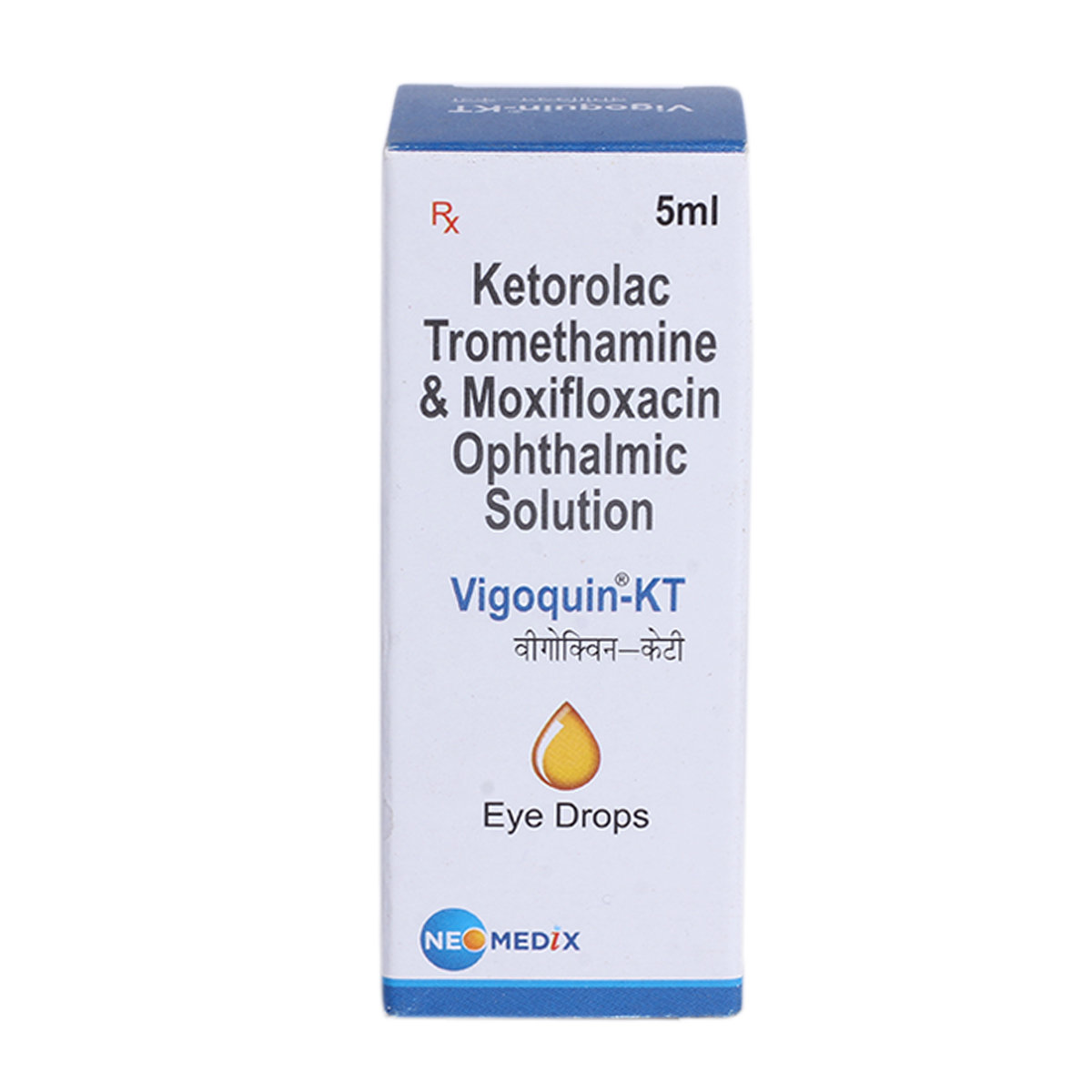Ketorolac
About Ketorolac
Ketorolac belongs to the group of non-steroidal anti-inflammatory (NSAID) painkillers and analgesics. Ketorolac is used short-term to relieve moderate to severe pain and inflammation. Ketorolac also works by alleviating the body of high temperature and fever. Ketorolac finds practical use as a pain-killer before and after surgery. Pain is an unpleasant sensation produced in the body caused by external insult or injury.
Ketorolac contains ‘’Ketorolac.’’ Ketorolac works by reducing the production of inflammatory substances (prostaglandins) and, thus, relieves the body of swelling and subsequent pain.
Ketorolac is a prescription-only medicine. It is available as a tablet, an injection and a topical solution. Ketorolac may cause certain common side effects such as stomach ache, nausea, vomiting, gas or dizziness. Most of these side effects do not require medical attention and resolve gradually over time. However, you are advised to talk to your doctor if these side effects persist.
It is advisable to inform the doctor if you are allergic to Ketorolac, to NSAIDs or any of the components of Ketorolac. Keep your doctor informed if you suffer from any bleeding disorders, peptic ulcers, diabetes, hypertension, cardiovascular disorders, kidney disease, liver disease, rheumatoid arthritis, nasal polyps (growths in the nose), or unusual swellings anywhere in the body. Keep your doctor informed if you have recently had any surgery. Keep your doctor informed if you suffer from a history of corneal damage, visual disturbances, eye infections or dry eye syndrome. Offer a detailed medical history and inform the doctor if you’ve ever had a heart attack or stroke. Inform the doctor if you are on antihypertensive, diuretic, steroid or mental health therapy. Consult your doctor if you are pregnant, planning a pregnancy or if you are breastfeeding, as Ketorolac is not recommended for use in these states. Consult your doctor before taking alcohol with Ketorolac.
Uses of Ketorolac
Medicinal Benefits
Ketorolac is an NSAID used as a painkiller for short-term pain management. Ketorolac finds application in pain relief before or post-surgery. It is also used temporarily to treat severe pain in patients suffering from arthritis (bone inflammation). Ketorolac works by reducing the levels of inflammatory substances called prostaglandins. Prostaglandins are produced at the site of injury and cause inflammation and pain. Ketorolac blocks pain signals, so the brain doesn’t perceive the severity of pain. Thus, Ketorolac is responsible for relieving the body of pain, inflammation and any associated symptoms such as redness or soreness.
Directions for Use
- Ketorolac can be taken with food or milk to prevent stomach aches.
- It is usually taken every 4-6 hours or as prescribed by your doctor.
- Swallow Ketorolac as a whole with a glass of water.
- Do not crush, chew, or break it.
Storage
Side Effects of Ketorolac
-
Nausea
-
Stomach ache
-
Gas
-
Diarrhoea
-
Constipation
-
Fatigue
-
Feeling sick
-
Dizziness
-
Raise in BP
Medicines Containing this Salt
View AllDrug Warnings
Ketorolac should not be used in case of any known allergy to either of the components or to NSAIDs in general. Ketorolac is not recommended for use in case of high risk or history of any liver disease, kidney disease, peptic ulcer disease, bleeding disorders, heart failure, asthma, IBD or if you have had any kind of stroke (even transient ischaemic stroke). Ketorolac should be used with absolute caution in those with a history of bleeding disorders or if you have had surgery recently. Keep your doctor informed if you are on any medication for fever, infection, coagulopathy, diabetes, diuresis (urine-forming drugs), asthma, hypertension, birth control, or pain relief. Consult your doctor before using Ketorolac during pregnancy or breastfeeding, as it is not recommended for use in these states. Avoid Ketorolac with alcohol as there may be an interaction. Do not drive or operate heavy machinery after taking Ketorolac as it can alter your mental ability to think clearly and cause drowsiness and giddiness.
Drug Interactions
Drug-Drug Interactions: Ketorolac may interact with antihypertensives (captopril, lisinopril, losartan), diuretics (furosemide), mood stabiliser (lithium), DMARD (methotrexate), steroids (prednisolone), aspirin and blood-thinners (clopidogrel, warfarin, enoxaparin etc), anti-gout drug (probenecid), anti-epileptic drugs (phenytoin, carbamazepine), psychoactive drugs (fluoxetine, alprazolam), muscle-pain reliever (pentoxifylline) and anti-depressants (SSRI’s like citalopram, escitalopram) etc.
Drug-Food Interactions: Ketorolac may interact with high-fat foods and alcohol.
Drug-Disease Interactions: Ketorolac should be used with caution in patients with a known hypersensitivity disorder, diabetes mellitus, epilepsy, kidney disease, liver disease, arterial or thrombotic disorders, cardiovascular health disorders, corneal damage, visual disturbances, eye infections, asthma, bleeding disorders, peptic ulcers, rheumatoid arthritis, dry eye syndrome, hypertension, anaemia, nasal polyps (overgrowth in the nose), stroke and any disease-causing swelling in the feet and hands.
Drug-Drug Interactions Checker List:
Safety Advice

Alcohol
cautionYou are advised not to consume alcohol with Ketorolac as it can increase dizziness.

Pregnancy
cautionKetorolac is not recommended for use during pregnancy unless absolutely indicated. If you are pregnant, consult your doctor before using Ketorolac.

Breast Feeding
cautionKetorolac passes into breast milk. Please consult your doctor if you have any concerns.

Driving
unsafeKetorolac may cause dizziness and drowsiness, which may affect your ability to drive. Hence, drive or operate machinery only when you are alert.

Liver
cautionExercise caution before using Ketorolac in case of pre-existing liver disease. Please consult your doctor to address any concerns.

Kidney
cautionExercise caution before using Ketorolac in case of pre-existing kidney disease. Please consult your doctor to address any concerns.

Children
unsafeKetorolac is not recommended for use in children below 17 years of age. Please consult your physician if you have any concerns.
Habit Forming
Diet & Lifestyle Advise
-
Keep your doctor informed if you are planning to or are pregnant.
-
Stay hydrated by drinking plenty of water.
-
Invest in a balanced diet. Load up on lean meats, fruits, green leafy vegetables, nuts, oily fish etc. Limit your intake of sweets and sugars, as these can worsen inflammation.
-
Cut back on alcohol, as this can worsen pain states as well as the quality of your sleep.
-
Try meditation and deep breathing to reduce overall stress and pain.
-
Stop smoking as smoking is known to worsen pain conditions.
-
Engage in mild physical exercise daily and keep your body active.
Special Advise
-
Take Ketorolac exactly as prescribed.
-
In case you miss a dose of Ketorolac, skip it and resume when it is time for the second dose only. Do not ever take a double dose.
-
It is very difficult to overdose on Ketorolac however, if you accidentally take extra doses of Ketorolac, please inform your doctor or go to a hospital immediately. Some of the symptoms of an overdose can cause blurred vision, shortness of breath, difficulty in speaking, severe headache, unusual tiredness, fainting and or ringing in the ears.
-
Ketorolac is not meant for use in children.
-
Ketorolac is not meant for use for mild pain.
-
Ketorolac is not meant for long-term use.
-
Do not discontinue taking Ketorolac abruptly or without the advice of the physician.
-
Please know that your doctor may order blood tests to check the effects of Ketorolac on your blood as Ketorolac may, in rare cases, cause anaemia (low blood levels).
Patients Concern
Disease/Condition Glossary
Osteoarthritis: Osteoarthritis is the most common type of arthritis. It occurs due to the breakdown of cartilage that cushions and protects the bones. The disease progresses gradually and tends to worsen if not treated. Symptoms include joint pain in the hips, lower back, knees and hands. It is commonly seen in post-menopausal women.
Rheumatoid Arthritis: Rheumatoid arthritis is an autoimmune inflammatory disorder of the joints. It is a chronic disease. Autoimmunity is when the body recognises its own cells as foreign and tends to attack them. Rheumatoid arthritis is often seen in conjunction with other autoimmune diseases such as hypothyroidism, inflammatory bowel disease (IBD), vitiligo, lupus etc. Symptoms include stiffness, swelling and weakness at the joints, lumps and redness on the skin, compromised movements, bone erosion and joint deformity.
Allergic Conjunctivitis: Conjunctiva is a thin membrane that layers the inside of the eyelids. Inflammation of the conjunctiva is referred to as conjunctivitis. It is also called pink eye. Conjunctivitis manifests as symptoms such as redness, grittiness, pain, itching and tearing of the eyes. Allergic conjunctivitis is the inflammation of the conjunctiva due to an allergic reaction to foreign substances such as spores, pollen, grit, and grime.
FAQs
name belongs to the group of non-steroidal anti-inflammatory (NSAID) painkillers and analgesics. Ketorolac is used short-term to relieve moderate to severe pain and inflammation.
Ketorolac works by reducing the levels of prostaglandins (inflammatory markers) and relieving the body of inflammation and pain.
Ketorolac should be used with caution if you are suffering from asthma, as there may be a reaction. Consult your doctor before use.
While Ketorolac is safe for treating acute pain, Ketorolac is not meant for long-term use because it can damage the kidneys and/or cause internal bleeding if over-used.
No, Ketorolac is not indicated as a painkiller during labour and delivery as it may cause uterine bleeding.
You can take Ketorolac with or without food, or as directed by your doctor. If Ketorolac upsets your stomach, you may take it with food.
Take Ketorolac for as long as your doctor has prescribed. It is usually recommended for short-term use (up to 5 days). Taking it for longer periods may increase the risk of serious side effects, such as gastrointestinal bleeding, kidney damage, and heart problems.
Ketorolac is neither an antibiotic nor a steroid. It is a nonsteroidal anti-inflammatory drug (NSAID) used to relieve moderate to severe pain and reduce inflammation.
Yes, Ketorolac is a strong and effective painkiller commonly used to manage moderate to severe pain after surgery or injury. However, Ketorolac should be used cautiously due to potential side effects, such as gastrointestinal bleeding, especially if used for more than a few days.
Ketorolac is safe when used at the dose and duration prescribed by your doctor. However, it may cause side effects, especially if used for a long time or at high doses. If you have any concerns about the safety of Ketorolac, please consult your doctor.
If you forget to take a dose of Ketorolac, take it as soon as you remember, unless it is almost time for your next dose. In that case, skip the missed dose and continue with your regular schedule. Do not take two doses at once to make up for a missed dose.
Yes, Ketorolac is effective for the short-term management of moderate to severe pain following surgery or injury.
The common side effects of Ketorolac include stomach ache, nausea, vomiting, gas, and dizziness. Most of these side effects do not require medical attention and resolve gradually over time. However, if the side effects persist, please consult your doctor.

